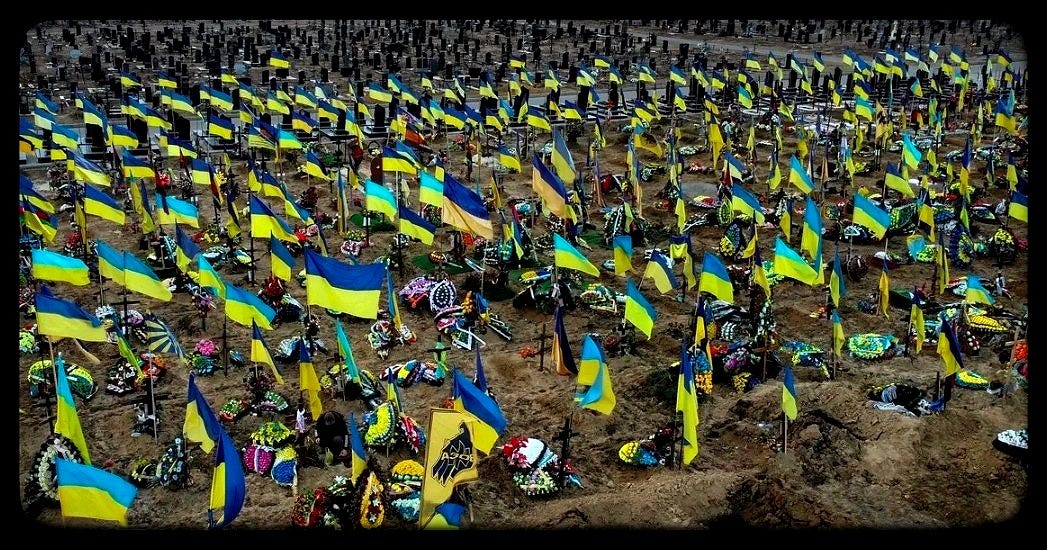Ukraine and WWII: "Today we should speak not of victory or triumph, but of remembrance."
GUEST POST: A Ukrainian historian and Kharkiv native tells Putin and Trump to stop claiming that they alone won WWII, and instead start respecting the victims and the heroes.
BY TETIANA KRUPA
As a historian, I would like to shift the focus away from who “won” or “lost” and instead emphasize the need to abandon triumphalist and overly patriotic narratives.
World War II was a terrible tragedy. Some nations recognized their mistakes, repented, and took responsibility. Others, by contrast, elevated victory into a cult, sacralizing it. The consequences of this approach are still visible today.
In the post-Soviet space - and for me personally, as someone who grew up in this cultural environment and whose relatives lived through the war - the memory of it remains particularly vivid. My hometown, Kharkiv, endured some of the most brutal battles. The city was liberated twice, and the fighting was horrific. Together with my colleague Makka Karazhanova, we traced the fates of national military units, including the 106th Cavalry Division from Akmola, composed largely of Kazakh soldiers.
I can say with full confidence that it was the anti-Hitler coalition that won the war — a coalition that included both the United States and the Soviet Union as it then existed.
Claims that the war was won solely by the “American soldier” or the “Soviet soldier” are only partially true. In a mass grave in my native village near Kharkiv lie Uzbeks. The Kazakhs of the 106th Division, sent into the spring 1942 offensive, died near Krasnohrad. In the mass graves around Ukraine lie Ukrainians, Uzbeks, Turkmens, Kazakhs, Kyrgyz, Azerbaijanis, Jews — people from across the former Soviet Union. And that is something people still remember. Whatever the man in the Kremlin claims.
That is why today we should speak not of victory as triumph, but of remembrance. Remembrance of those who stood up to the monstrous evil of their time. And more importantly - we must draw conclusions in and for the present, because history, unfortunately, has a tendency to repeat itself. Today, evil is no longer confined to history books - it is on our streets and in the skies above our cities.
To the President of the United States, Mr. Trump, I would say - not as a politician but as a historian - that instead of seeking victories in the past, he should strive to enter history as a man who helped defeat the evil of our time.
We, citizens of Ukraine, expect from him not dubious historical commentary, but concrete support — as one of the guarantors of the Budapest Memorandum. Otherwise, I see no reason to consider Mr. Trump a historian at all.
Tetiana Krupa is a historian, archaeologist, restorer, and a former expert of the Global Heritage Fund (2022) on monitoring cultural heritage in Ukraine, born in Kharkiv, Ukraine.





Thank you for a reasoned reasonable approach to a subject usually weighted down with either hubris or horror. I was one of those who encouraged the Reagan White House to acknowledge the Soviet role even as he honored the “Boys of Pointe du Hoc”
Thank you for this, Tetiana. You make a good point.
There need to be more intelligent, knowledgeable voices speaking out about what is being done to Ukraine by its terrorist, imperialist neighbor.